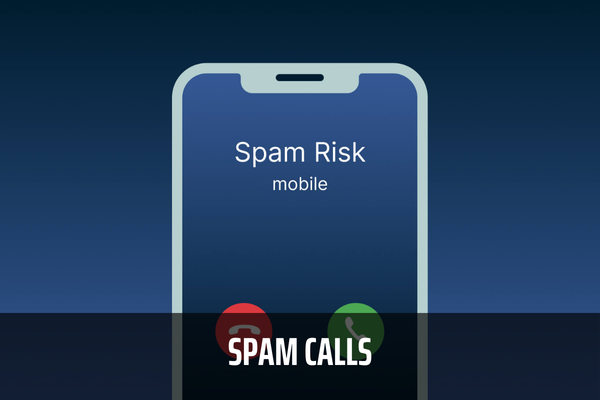What do spam calls include? Are advertising calls that contain other people’s words without obtaining their consent considered spam calls in Vietnam?
- What do spam calls include? Are advertising calls that contain other people’s words without obtaining their consent considered spam calls in Vietnam?
- What are the measures for fighting and prevention of spam calls of the State of Vietnam?
- How should persons send feedbacks about spam messages in Vietnam?
What do spam calls include? Are advertising calls that contain other people’s words without obtaining their consent considered spam calls in Vietnam?
Pursuant to Clause 5, Article 3 of Decree 91/2020/ND-CP, spam calls include:
Spam calls include:
a) Advertising calls that are made without users’ prior consent or advertising calls that violate the regulations of this Decree on making advertising calls;
b) Calls that has prohibited contents specified in Article 9 of the Law on Electronic Transactions, Article 12 of the Law on Information Technology, Article 12 of the Law on Telecommunications, Article 8 of the Law on Advertising, Article 7 of the Law on Cyberinformation Security and Article 8 of the Cybersecurity Law.
According to regulations, spam calls will be identified through 2 ways:
(1) Advertising calls that are made without users’ prior consent or advertising calls that violate the regulations of this Decree on making advertising calls
(2) Calls that has prohibited contents specified in Article 9 of the Law on Electronic Transactions, Article 12 of the Law on Information Technology, Article 12 of the Law on Telecommunications, Article 8 of the Law on Advertising, Article 7 of the Law on Cyberinformation Security and Article 8 of the Cybersecurity Law.
In addition, are advertising calls that contain other people’s words without obtaining their consent considered spam calls?
Pursuant to the provisions in Clause 8, Article 8 of the Law on Advertising 2012
Prohibited acts in advertising
1. Advertising the products, goods and services specified in Article 7 of this Law.
2. Using advertisements that reveal the State secrets, harm the independence and National sovereignty, National defense and security.
3. Using advertisement inartistically, contrary to the Vietnam’s history, culture, ethics and traditional customs
4. Using advertisements that affect the urban scenery, the traffic safety and the social order.
5. Using advertisements that degrade the respectability of the National flag, the National emblem, the National anthem, the Party’s flag, national heroes, cultural celebrities, the leaders of the State and the Party.
6. Using advertisements that express racial discrimination, sexual discrimination, prejudice against disabled people, or violate the freedom of belief and religion.
7. Using advertisements that offend the prestige, honor and dignity of other organizations and individuals.
8. Using advertisements that contain other people’s pictures, words or text without obtaining their consent, unless otherwise permitted by law.
...
Therefore, advertising calls that contain other people’s words without obtaining their consent are considered spam calls, unless otherwise permitted by law.

What do spam calls include? Are advertising calls that contain other people’s words without obtaining their consent considered spam calls in Vietnam? (Image from the Internet)
What are the measures for fighting and prevention of spam calls of the State of Vietnam?
Pursuant to Article 4 of Decree 91/2020/ND-CP, measures for fighting and prevention of spam messages, spam emails and spam calls include:
- Develop and launch systems for fighting and prevention of spam messages, spam emails and spam calls.
- Establish criteria for recognition of spam messages, spam emails and spam calls.
- Carryout surveillance and supervision; share information about sources of spam messages, spam emails and spam calls.
- Receive and process feedbacks about spam messages, spam emails and spam calls.
- Supervise the provision of advertising services by messages, emails and calls.
- Block, revoke electronic addresses that send out spam messages, spam emails and spam calls.
- Enhance domestic and international cooperation in anti-spam efforts.
- Spread knowledge and raise awareness of the anti-spam efforts
How should persons send feedbacks about spam messages in Vietnam?
Pursuant to Article 5 of Decree 91/2020/ND-CP on the systems for receiving feedbacks about spam messages, spam emails and spam calls:
Systems for receiving feedbacks about spam messages, spam emails and spam calls
1. Authority of Information Security (AIS) of the Ministry of Information and Communications shall develop and operate the system for receiving feedbacks about spam messages, spam calls (on 5656 prefix) and spam emails (hereinafter referred to as “anti-spam feedbacks”).
2. When running advertising campaigns, advertisers that send advertising messages shall also send their copies to the system for receiving anti-spam feedbacks mentioned in Clause 1 of this Article.
3. Users of telecommunications, Internet, emailing services may send feedbacks and evidence to the system for receiving anti-spam mentioned in Clause 1 of this Article.
Authority of Information Security (AIS) of the Ministry of Information and Communications shall develop and operate the system for receiving feedbacks about spam messages, spam calls.
Users of telecommunications, Internet, emailing services may send feedbacks and evidence to the system for receiving anti-spam (on 5656 prefix)
LawNet